Local Plumber Near Me – Georgetown, TX
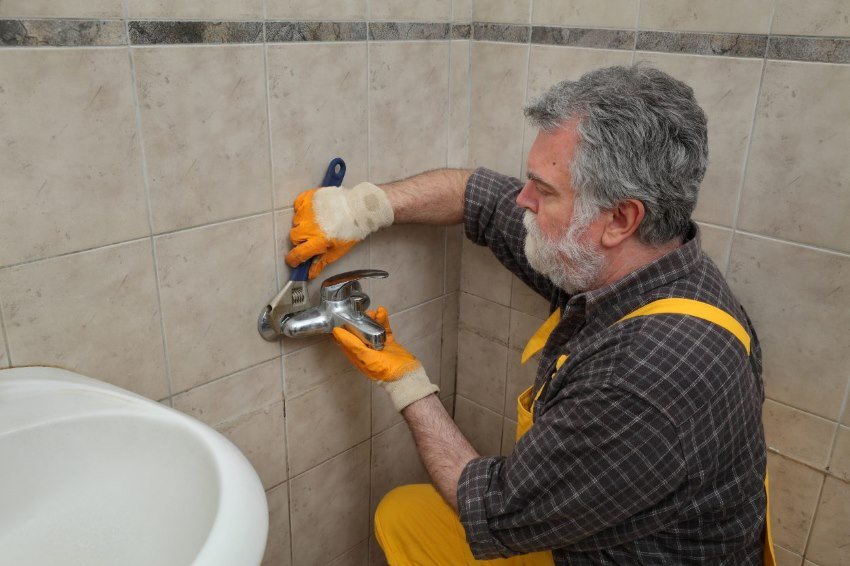
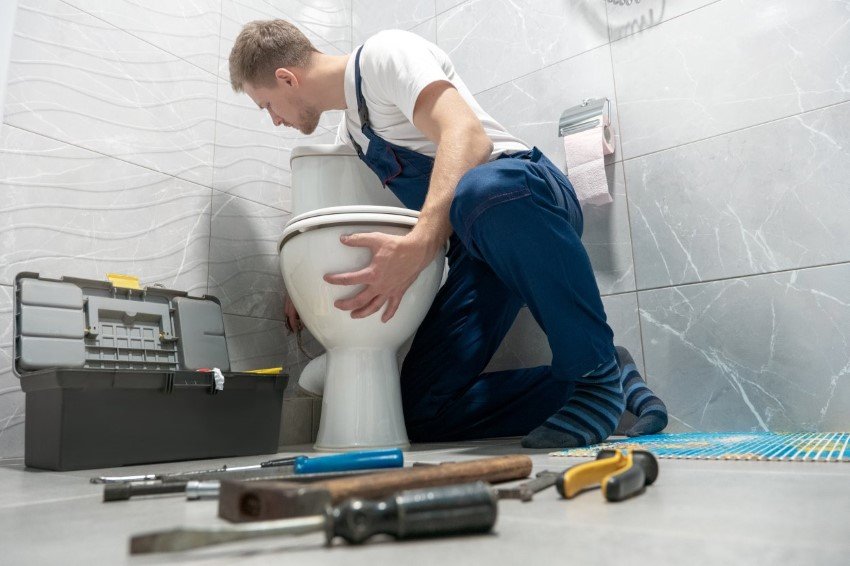
CALL FOR A FREE ESTIMATE
Localized Plumbing Solutions: Tailoring Services to Meet the Unique Needs of Different Neighborhoods
Plumbing services are not one-size-fits-all, especially when it comes to diverse neighborhoods with varying infrastructure, demographics, and environmental factors. Here’s a deep dive into how plumbing companies tailor their services to cater to the specific needs of different neighborhoods:
1. Infrastructure Assessment:
– Plumbing companies conduct thorough assessments of the local infrastructure in each neighborhood to understand the unique challenges and opportunities.
– Factors such as age of buildings, types of pipes used, water pressure variations, and historical plumbing issues are taken into account.
2. Demographic Considerations:
– Plumbing companies analyze the demographics of each neighborhood to tailor their services accordingly.
– For example, neighborhoods with aging populations may require more accessible fixtures and grab bars, while those with young families may need child-proofing measures for faucets and drains.
3. Environmental Adaptations:
– Neighborhoods in different geographical locations may face varying environmental challenges that affect plumbing systems.
– Coastal areas may require corrosion-resistant materials due to saltwater exposure, while areas prone to freezing temperatures may need additional insulation to prevent pipe bursts.
4. Regulatory Compliance:
– Plumbing companies ensure compliance with local building codes, zoning regulations, and environmental standards specific to each neighborhood.
– This includes adhering to requirements for water conservation, backflow prevention, and sewer line maintenance mandated by local authorities.
5. Historical Preservation:
– In neighborhoods with historical significance, plumbing companies work closely with preservation boards and heritage organizations to preserve and maintain original plumbing fixtures and features.
– Restoration projects may involve specialized techniques to refurbish antique fixtures or repair vintage plumbing systems while preserving their historical integrity.
6. Cultural Sensitivity:
– Plumbing companies respect cultural sensitivities and preferences prevalent in different neighborhoods.
– For example, in neighborhoods with diverse cultural backgrounds, plumbers near me may need to accommodate religious practices related to water usage or sanitation.
7. Community Engagement:
– Plumbing companies actively engage with community leaders, homeowner associations, and residents to understand their specific needs and concerns.
– Community feedback and input are solicited to tailor services and implement solutions that resonate with the local population.
8. Emergency Response Planning:
– Emergency plumber near me develop customized response plans for each neighborhood, considering factors such as population density, infrastructure vulnerabilities, and historical emergency patterns.
– Proactive measures are taken to minimize response times and mitigate risks during plumbing emergencies.
9. Educational Outreach:
– Plumbing companies conduct educational outreach programs and workshops tailored to the unique needs of each neighborhood.
– Topics may include water conservation tips, DIY plumbing maintenance, and environmental sustainability practices relevant to the local community.
10. Continuous Improvement:
– Plumbing companies continuously evaluate and adapt their services based on feedback, performance metrics, and evolving neighborhood dynamics.
– By staying responsive to changing needs and preferences, plumbing companies ensure that their services remain relevant and effective in meeting the unique demands of different neighborhoods.
By tailoring plumbing services to the specific needs of each neighborhood, plumbing companies can deliver more personalized, effective, and sustainable solutions that enhance the quality of life for residents and contribute to the overall well-being of the community.
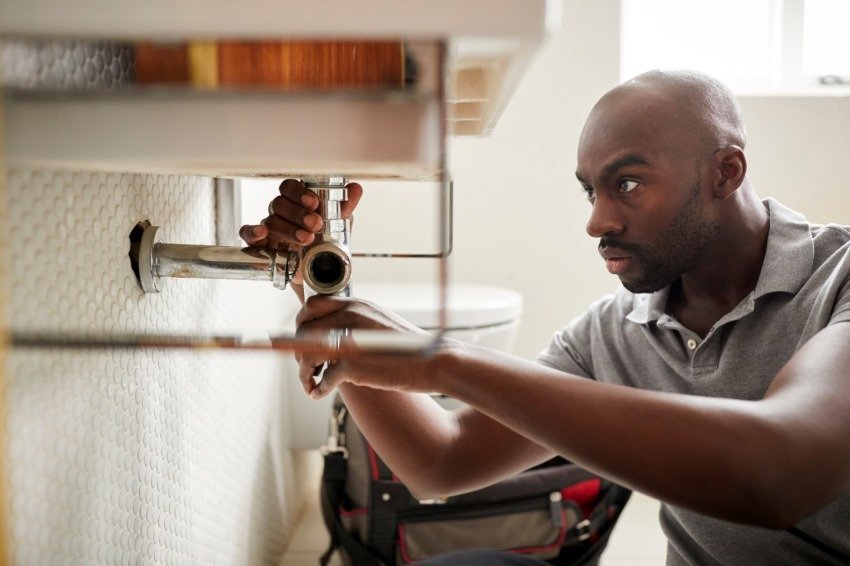
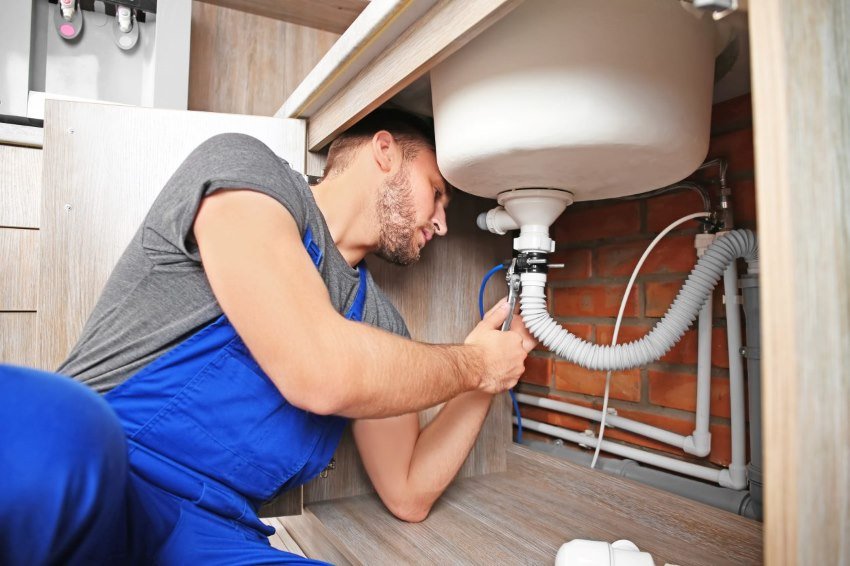
Local Plumber Networks
In an industry as vital as plumbing, where emergencies can arise at any moment, local plumber networks serve as invaluable collaborative ecosystems. These networks facilitate enhanced service delivery, resource sharing, and professional support among local plumbing professionals. Here’s how these collaborative partnerships benefit both plumbers close to me and the communities they serve:
1. Optimized Response Times:
– By forming networks, emergency plumber can coordinate and prioritize calls more effectively, ensuring prompt responses to urgent plumbing needs within the community.
– Plumbers can pool resources, such as manpower and equipment, to handle high-demand periods or large-scale emergencies more efficiently.
2. Geographic Coverage:
– Local plumbers networks enable participating professionals to collectively provide broader geographic coverage, reaching neighborhoods and areas that individual plumbers may not serve on their own.
– This expanded coverage ensures that residents in underserved or remote areas have access to reliable plumbing services when needed.
3. Specialized Expertise:
– Collaborative networks allow plumbers to tap into a diverse pool of expertise and specialized skills within the local community.
– Plumbers with niche specialties, such as historical preservation plumbing or eco-friendly installations, can share knowledge and support each other in delivering high-quality services to clients with unique needs.
4. Knowledge Sharing and Training:
– Local plumber networks foster a culture of continuous learning and professional development through knowledge-sharing initiatives and training programs.
– Plumbers can exchange best practices, troubleshoot challenging issues, and stay updated on industry trends and regulations, enhancing their collective expertise and service quality.
5. Resource Sharing and Cost Efficiency:
– Collaborative partnerships enable plumbers to share resources, such as tools, equipment, and inventory, reducing overhead costs and increasing operational efficiency.
– Shared purchasing agreements and bulk discounts on supplies and materials further optimize cost savings for network members.
6. Quality Assurance and Standards Compliance:
– Local plumber networks establish standards of excellence and quality assurance measures to uphold the reputation and credibility of participating professionals.
– Members adhere to common best practices, ethical standards, and regulatory requirements, ensuring consistent service quality and customer satisfaction across the network.
7. Community Engagement and Outreach:
– Collaborative networks provide a platform for plumbers to collectively engage with the local community, build trust, and demonstrate their commitment to service excellence.
– Through community outreach programs, educational workshops, and charitable initiatives, plumbers contribute to the well-being and resilience of the neighborhoods they serve.
8. Referral Network and Client Relationships:
– Plumbers within the network refer clients to each other based on expertise, availability, or specialization, fostering a spirit of cooperation and mutual support.
– This referral network strengthens client relationships and loyalty, as customers receive reliable recommendations and access to a wider range of services from trusted professionals.
9. Emergency Preparedness and Disaster Response:
– Local plumber networks play a crucial role in emergency preparedness and disaster response efforts within the community.
– Plumbers collaborate with local authorities, emergency responders, and disaster relief organizations to mobilize resources and provide essential plumbing services during crises or natural disasters.
10. Advocacy and Industry Representation:
– Collaborative networks advocate for the interests of local plumbers, representing their concerns and priorities to government agencies, regulatory bodies, and industry stakeholders.
– Through collective advocacy efforts, plumbers work to shape policies, regulations, and standards that support the growth and sustainability of the plumbing profession.
In summary, local plumber networks serve as catalysts for collaboration, innovation, and excellence in service delivery within the plumbing industry. By working together, plumbers strengthen their capacity to meet the diverse needs of their communities, foster professional growth, and uphold the highest standards of integrity and professionalism.
The Art of Personalized Service
In the plumbing industry, personalized service isn’t just about fixing pipes—it’s about building lasting relationships with customers and exceeding their expectations at every touchpoint. Here’s how local plumbers master the art of personalized service to prioritize customer relationships and satisfaction:
1. Understanding Individual Needs:
– Local plumbers take the time to understand each customer’s unique needs, concerns, and preferences.
– They actively listen to customer inquiries, ask probing questions, and conduct thorough assessments to tailor solutions that address specific plumbing issues while considering budgetary constraints and lifestyle preferences.
2. Clear and Transparent Communication:
– Communication is key to personalized service. Local plumbers communicate openly and honestly with customers, explaining technical concepts in simple terms and providing regular updates throughout the service process.
– They set clear expectations regarding service timelines, costs, and outcomes, ensuring that customers feel informed and empowered throughout the plumbing service experience.
3. Empathy and Respect:
– Local plumbers approach every interaction with empathy, recognizing that plumbing issues can be stressful and disruptive for customers.
– They demonstrate empathy and respect for customers’ concerns, showing understanding and patience while addressing questions or resolving issues with care and professionalism.
4. Proactive Service Recommendations:
– Beyond addressing immediate plumbing problems, local plumbers proactively recommend preventive maintenance measures and long-term solutions to help customers avoid future issues.
– They provide practical advice on plumbing system care, water conservation practices, and energy-efficient upgrades tailored to each customer’s home and lifestyle.
5. Flexible Scheduling and Convenience:
– Local plumbers prioritize customer convenience by offering flexible scheduling options and accommodating urgent service requests, including evenings, weekends, and holidays.
– They respect customers’ time by arriving promptly for appointments, minimizing disruption to their daily routines, and completing service tasks efficiently and effectively.
6. Quality Workmanship and Attention to Detail:
– Local plumbers take pride in their workmanship, striving for excellence in every aspect of their service delivery.
– They pay attention to detail, ensuring that installations, repairs, and maintenance tasks are performed to the highest standards of quality and safety, leaving no room for shortcuts or compromises.
7. Follow-Up and Aftercare:
– Personalized service doesn’t end when the job is done. Local plumbers follow up with customers after service completion to ensure satisfaction and address any remaining concerns.
– They provide guidance on post-service care, offer warranties or guarantees for their work, and remain accessible for additional assistance or questions that may arise.
8. Building Trust and Loyalty:
– By consistently delivering exceptional service and exceeding customer expectations, local plumbers build trust and loyalty with their clientele.
– They prioritize long-term relationships over short-term gains, earning customers’ trust through integrity, reliability, and a genuine commitment to their satisfaction and well-being.
9. Community Engagement and Involvement:
– Local plumbers actively engage with their communities, participating in local events, sponsoring charitable initiatives, and supporting neighborhood causes.
– They foster a sense of community pride and trust, positioning themselves as trusted advisors and valued partners in the communities they serve.
10. Continuous Improvement and Feedback Loop:
– Personalized service is a journey of continuous improvement. Local plumbers actively seek feedback from customers to identify areas for enhancement and refinement in their service delivery.
– They use customer feedback as a valuable resource for learning, growth, and innovation, striving to evolve and adapt their practices to better serve their customers’ evolving needs and expectations.
In summary, the art of personalized service isn’t just about fixing plumbing problems—it’s about building meaningful connections, fostering trust, and creating memorable experiences that leave a lasting impression on customers. By prioritizing customer relationships and satisfaction, local plumbers differentiate themselves in a competitive market, earning the loyalty and admiration of their clientele for years to come.
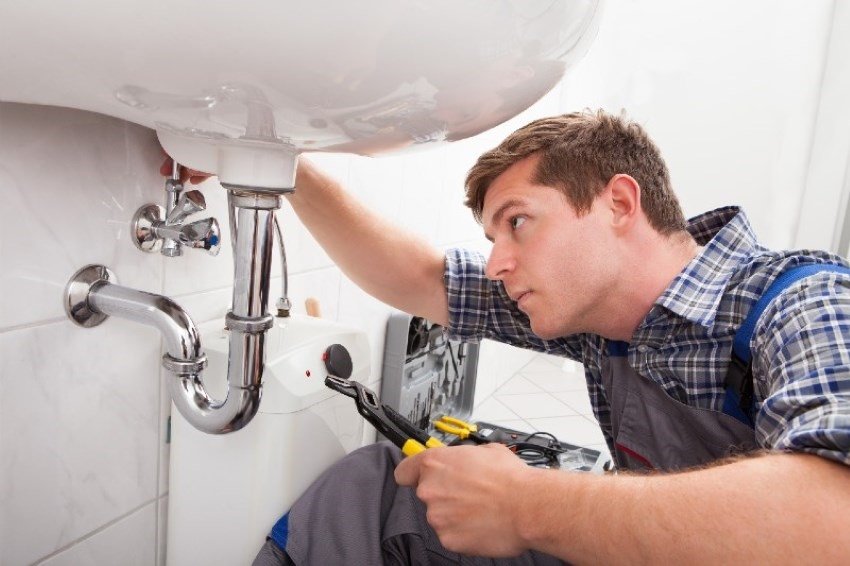
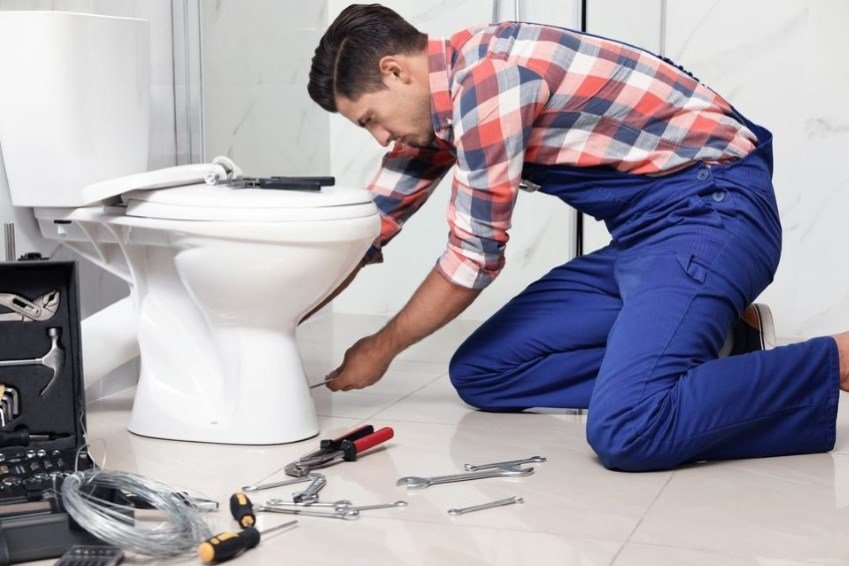
Emergency Preparedness Workshops
Emergency preparedness workshops hosted by local plumbers serve as invaluable resources for empowering residents with the skills and knowledge needed to respond effectively to plumbing-related emergencies. These workshops provide practical guidance, hands-on training, and expert advice to help residents protect their homes, mitigate damage, and stay safe during unexpected plumbing crises. Here’s how these workshops empower residents with essential plumbing skills and knowledge:
1. Identifying Common Plumbing Emergencies:
– Workshops educate residents about common plumbing emergencies, such as burst pipes, clogged drains, water leaks, and sewer backups.
– Participants learn to recognize warning signs and early indicators of potential plumbing issues, enabling proactive intervention and prevention.
2. Emergency Response Strategies:
– Residents are equipped with actionable strategies and step-by-step protocols for responding to plumbing emergencies swiftly and effectively.
– They learn how to shut off the main water supply, isolate specific fixtures, and deploy temporary fixes to contain leaks or mitigate damage until professional help arrives.
3. DIY Troubleshooting Techniques:
– Workshops teach residents practical DIY troubleshooting techniques for addressing minor plumbing problems and performing basic repairs.
– Participants gain hands-on experience with tools and equipment commonly used in plumbing maintenance, such as plungers, wrenches, and pipe sealants.
4. Water Conservation Practices:
– Residents learn about water conservation practices and eco-friendly habits to minimize water waste, reduce utility bills, and preserve precious natural resources.
– They receive tips on fixing leaky faucets, installing low-flow fixtures, and optimizing water usage without sacrificing comfort or convenience.
5. Sewer and Drain Maintenance:
– Workshops cover essential sewer and drain maintenance practices to prevent blockages, backups, and sewer line damage.
– Participants learn proper disposal techniques for grease, food scraps, and non-flushable items, as well as strategies for regular drain cleaning and inspection.
6. Safety Protocols and Hazard Prevention:
– Residents are educated about safety protocols and hazard prevention measures to protect themselves and their families from plumbing-related hazards.
– They receive guidance on handling hazardous materials, managing gas leaks, and detecting carbon monoxide emissions to ensure home safety and well-being.
7. Emergency Toolkits and Supplies:
– Workshops provide recommendations for assembling emergency toolkits and supplies stocked with essential plumbing tools, materials, and safety gear.
– Participants learn to create customized emergency preparedness kits tailored to their homes’ specific needs and vulnerabilities.
8. Community Resources and Support:
– Residents gain awareness of local resources, support networks, and emergency contacts available to assist them during plumbing emergencies.
– They learn how to access reputable plumbing professionals, emergency services, and community organizations for assistance and guidance when needed.
9. Q&A Sessions and Expert Advice:
– Workshops offer opportunities for participants to ask questions, seek advice, and receive personalized guidance from experienced plumbing professionals.
– Residents benefit from expert insights, troubleshooting tips, and practical recommendations tailored to their unique circumstances and concerns.
10. Ongoing Education and Engagement:
– Emergency preparedness workshops foster a culture of ongoing education and engagement within the community, encouraging residents to stay informed, proactive, and prepared for potential emergencies.
– Participants are encouraged to share their knowledge and experiences with friends, family, and neighbors, amplifying the impact of emergency preparedness initiatives throughout the community.
By empowering residents with essential plumbing skills and knowledge through emergency preparedness workshops, local plumbers play a vital role in enhancing community resilience, fostering self-reliance, and promoting proactive measures for home safety and disaster preparedness. These workshops serve as catalysts for positive change, equipping residents with the confidence and competence needed to navigate plumbing emergencies with resilience and resourcefulness.
Schedule A Free Estimate
Reach Us
Stamped Concrete Contractor ATX
Austin TX
(512) 877-2721
